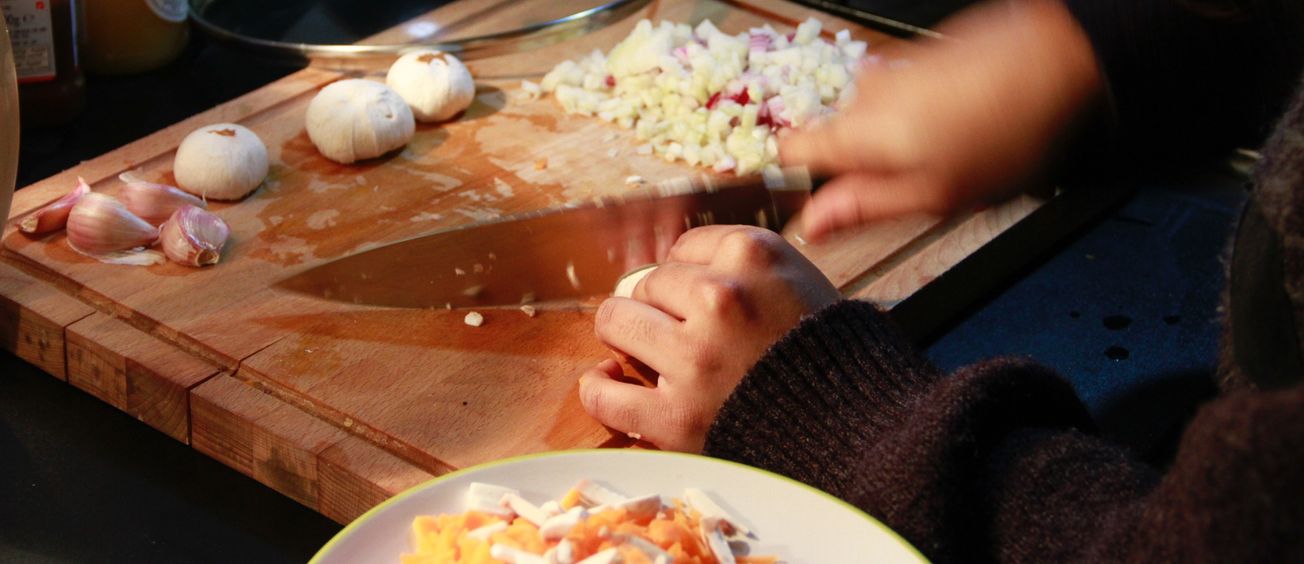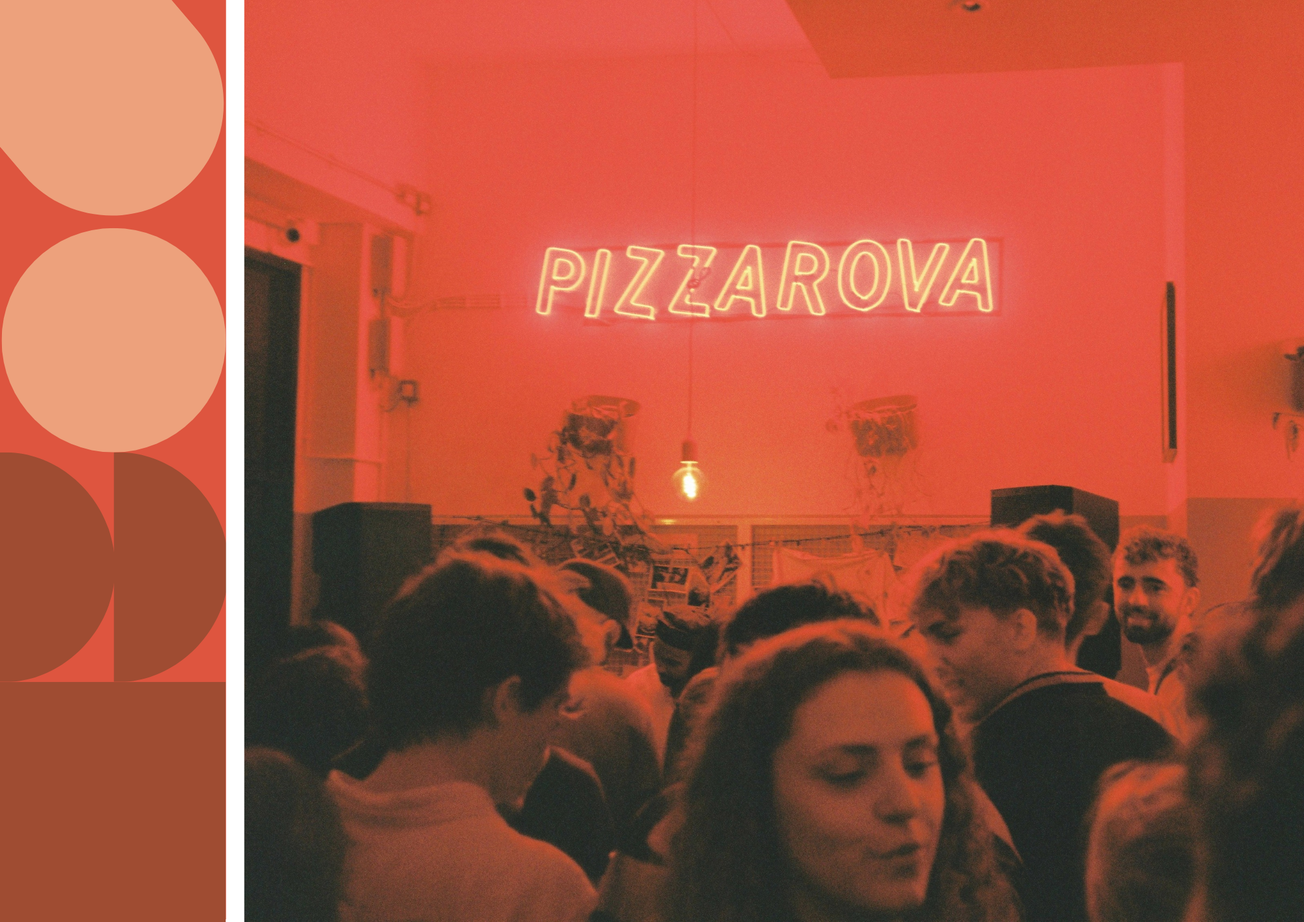By Saiba Haque, Food Deputy Editor, Third Year Politics and Philosophy
The Croft Magazine // With preparations for freshers’ week underway, the city will be blooming with the eagerness of new beginnings as students arrive at Bristol from all over the country. The first year of the university remains to be a collective moment of ‘culture-shock’ for many students.
Suddenly, we are in a new city with people from many walks of life. We find ourselves no longer within our comfort zones as we enter the city. We undergo the first attempt to challenge ourselves; through the semblance of a cultural ‘rebirth’ or ‘revamp’ to make way for a new version of us in order to better adapt to the new city. I believe that finding ways to recreate one’s culinary cuisine in this new environment is a valuable part of this process.
As students transition from their former life at home to their new era at university, there seems to be this highly prevalent notion of a ‘coming of age’ or a ‘rebrand’ of oneself. When many ponder about the idea of ‘rebirth’ and ‘rebranding’ at university, they may often comprehend this idea as the abandonment of the former self to make way for a huge and momentous change in their personality.
When I reminisce my time as a fresher, I recall a strong feeling of dissonance within myself, as I pit the version of myself - from my hometown - against the revamped and rebranded version of myself at university. I would often feel as though I have traded in some of the roots of my former self at the expense of my newer ‘rebranded’ self. A feeling that I reckon is rather familiar to many students. I would argue that although we are growing independently in our own way at university and discovering ourselves, it does not mean that there is no room for us to appreciate the version of ourselves from our hometown. I used to have this misconception that once you go to university, and enter a whole new environment, you would change completely as a person. Although some parts of you may evolve, it doesn’t mean that your true essence will dissipate for good. To me, ‘rebirth’ is not about a drastic reinvention of oneself, but it is more so about embracing all the new changes whilst also honouring and appreciating one’s roots - think of it like a renaissance rather than a complete reinvention of yourself. That being said, it begs the question: what can we do to maintain this healthy balance of making peace with both versions of ourselves?

Others may have different solutions to combat this but for me, this is where the role of food comes in. The culinary cuisine from my culture is what often grounds me and bridges the gap of disconnectedness between my past self and present self, and I strongly believe that it impacts many others. Though there are some very simple dishes in my cultural cuisine, there are also dishes that are laborious and time-consuming to prepare and make. It is understandable then, that continuing to practice making the cuisine of my culture whilst being limited to a student kitchen, within a student budget can sometimes pose limitations and challenges. Nevertheless, although seemingly difficult, it’s not impossible. Whilst all I will say can be applied to any cultural cuisine, I will mostly use examples of the cuisine regional to where I’m originally from: Bangladesh.
I would bulk buy my spices and pantry ingredients (within reasonable limits) before the year starts so that I have enough stock to make whatever I want whenever I want, which also works out cheaper than buying spices that you may find in small cylindrical containers at the normal grocery stores. Some ingredients can be swapped for easier versions to take up less time and last longer (frozen garlic, ginger paste). Certain kitchen items, selected with thought, make for quicker versions of the dish that you are trying to make.
Even though authenticity is an important aspect to consider for maintaining the practice of making cultural/regional cuisines, in my opinion, it’s not the end of the world if some of the ‘authentic ingredients’ are difficult to find. When you move to a new city, they may not have the best regional selection of ingredients for your cuisine, and that’s okay! In the wise words of my grandmother “just use what you can find!”. For instance, as much as I adore a traditional ‘Shorishe Eilish’ (Hilsa fish in a mustard-based curry) I have accepted that it’s immensely difficult to find this fish in Bristol within my student budget whilst also being very time-consuming to eat due to the large number of fishbones. However, I can assure you that it would not stop me from making a similar dish with the same mouth-watering mustard curry base; I would just substitute the Hilsa fish for a more widely available option in the city, like seabass. Of course, now the dish will be called ‘Shorishe Bhetki’ (Seabass in a mustard-based curry) but the cooking methods would remain more or less the same and the flavours would still be marvellous!
Something as simple as following cooking rituals not only helps in eliminating the feeling of disconnectedness from one’s home culture, but since we are adapting the dishes for their regional availability and adhering to the student needs, we are experimenting with a revamped version of a traditional dish. Through this process, we are using traditional methods to make a brand new, regional iteration of our beloved dish from home. We are embracing the adapting changes of student life whilst honouring the roots of where we are from. That to me is a spectacular example of a cross-cultural renaissance and rebirth in a student kitchen, where the old meets the new.
Want to hear more from Saiba? Follow her food journey: @cookingwithfloater









